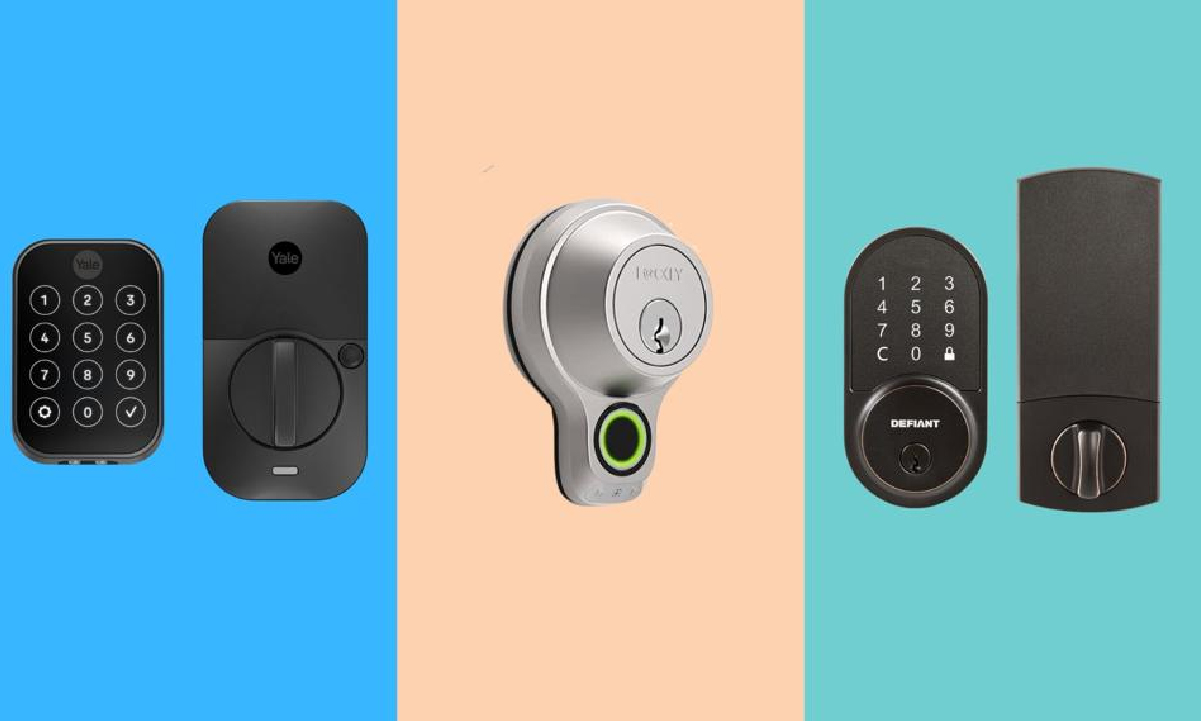In the ever-evolving landscape of home security, smart locks have emerged as a revolutionary solution, providing homeowners with convenient and advanced ways to secure their homes. With smart locks becoming popular among homeowners and builders, we are no longer limited to traditional lock-and-key mechanisms. Instead, we have a plethora of options that cater to various preferences and security needs. In this blog post, we’ll explore the different types of smart locks available in the market. Each option offers a unique set of features to enhance the safety and convenience of your home.
Bluetooth Smart Locks: Unlocking Convenience at Your Fingertips
Let’s begin with Bluetooth smart locks, a popular choice for those who prioritize energy efficiency and seamless smartphone connectivity. These types of smart door locks enable users to unlock doors with the tap of a button on their smartphones, eliminating the need for physical keys. However, it’s essential to note that Bluetooth smart locks have a limited range and require close proximity to function. While they provide convenience for household members, they lack remote access capabilities.
Wi-Fi Smart Locks: Integrating Intelligence into Your Home
For those seeking a more comprehensive smart home integration, a Wi-Fi smart lock for home is an excellent choice. These locks seamlessly connect to your home’s Wi-Fi network and can be controlled remotely via smartphone apps. Integration with smart home hubs like Amazon Echo allows for voice-activated control, adding an extra layer of convenience to your daily life. Wi-Fi smart locks provide the flexibility to manage your home’s security from anywhere, making them an attractive option for busy individuals.
Biometric Smart Locks: Elevating Security with Personal Touch
Biometric smart locks take security to the next level by incorporating advanced features, such as fingerprint and facial recognition. These smart locks for homes offer a highly secure method of access, ensuring that only authorized individuals can unlock the door. Biometric smart locks are among the top smart locks that provide a sophisticated and futuristic approach to home security, making them an ideal choice for those who prioritize top-notch protection for their homes and loved ones.
Key Fob Smart Locks: Proximity-Based Access with a Compact Device
Key fob smart locks offer a unique solution for homeowners who want proximity-based door unlocking without the need for a smartphone. These locks come with a compact wireless device, commonly known as a key fob, which allows users to unlock doors by simply being near. While key fob smart locks offer convenience, it’s crucial to safeguard against the potential loss of the device to maintain the security of your home.
Keypad-Based Locks: No More Fumbling for Keys
A popular and versatile choice among homeowners, keypad-based locks eliminate the need for physical keys. Users can gain entry by entering a numeric code on the keypad, providing a convenient and keyless solution. This type of smart lock is well-suited for families. They allow each member to have a unique code for personalized access. Keypad-based smart locks for homes also offer the advantage of easily changing access codes, enhancing security.
Deadbolt Smart Locks: Enhancing Security and Convenience
Designed as a replacement for traditional deadbolts, deadbolt smart locks for homes offer enhanced security and control. These locks can be seamlessly integrated with smartphones and other smart devices, allowing users to monitor and control access remotely. Deadbolt smart locks are the best smart door locks for those looking to upgrade their home security without compromising on the convenience of smart technology.
Choosing the Best Smart Lock for Your Home
When considering the best smart lock for your home, it’s essential to weigh the pros and cons of each type based on your specific needs. Bluetooth smart locks are energy-efficient but lack remote access, while Wi-Fi smart locks offer comprehensive remote control. Biometric smart locks provide top-notch security, and key fob smart locks offer proximity-based convenience. Keypad-based locks eliminate the need for keys, and deadbolt smart locks combine enhanced security with advanced technology.
In Conclusion
Ultimately, the best smart lock for your home depends on your preferences, lifestyle, and the level of security you seek. As technology continues to advance, smart locks will likely become even more sophisticated, providing homeowners with increasingly innovative ways to protect their homes. Stay informed, explore your options, and choose the smart lock that aligns perfectly with your vision of a safe and technologically advanced home.
Frequently Asked Questions (FAQs)
1. What is the main advantage of Bluetooth smart locks?
Bluetooth smart locks offer convenient smartphone connectivity, allowing users to unlock doors with a simple tap. However, it’s important to note that they have a limited range and lack remote access capabilities.
2. How do Wi-Fi smart locks enhance home security?
Wi-Fi smart locks integrate seamlessly into your home network, enabling remote control through smartphone apps. This type of smart lock provides flexibility, allowing users to manage home security from anywhere, including voice-activated control via smart home hubs.
3. What sets biometric smart locks apart from other types?
Biometric smart locks incorporate advanced features like fingerprint and facial recognition, offering a highly secure method of access. Ideal for those prioritizing top-notch protection, these locks provide a sophisticated and futuristic approach to home security.
4. How do key fob smart locks provide proximity-based access?
Key fob smart locks use a compact wireless device for proximity-based door unlocking, eliminating the need for a smartphone. While convenient, users should safeguard against the potential loss of the key fob to maintain home security.
5. What makes keypad-based locks a versatile choice for homeowners?
Keypad-based locks eliminate the need for physical keys, allowing entry through a numeric code. Ideal for families, each member can have a unique code, and easy code changes enhance security. They offer a convenient and keyless solution for home access.

